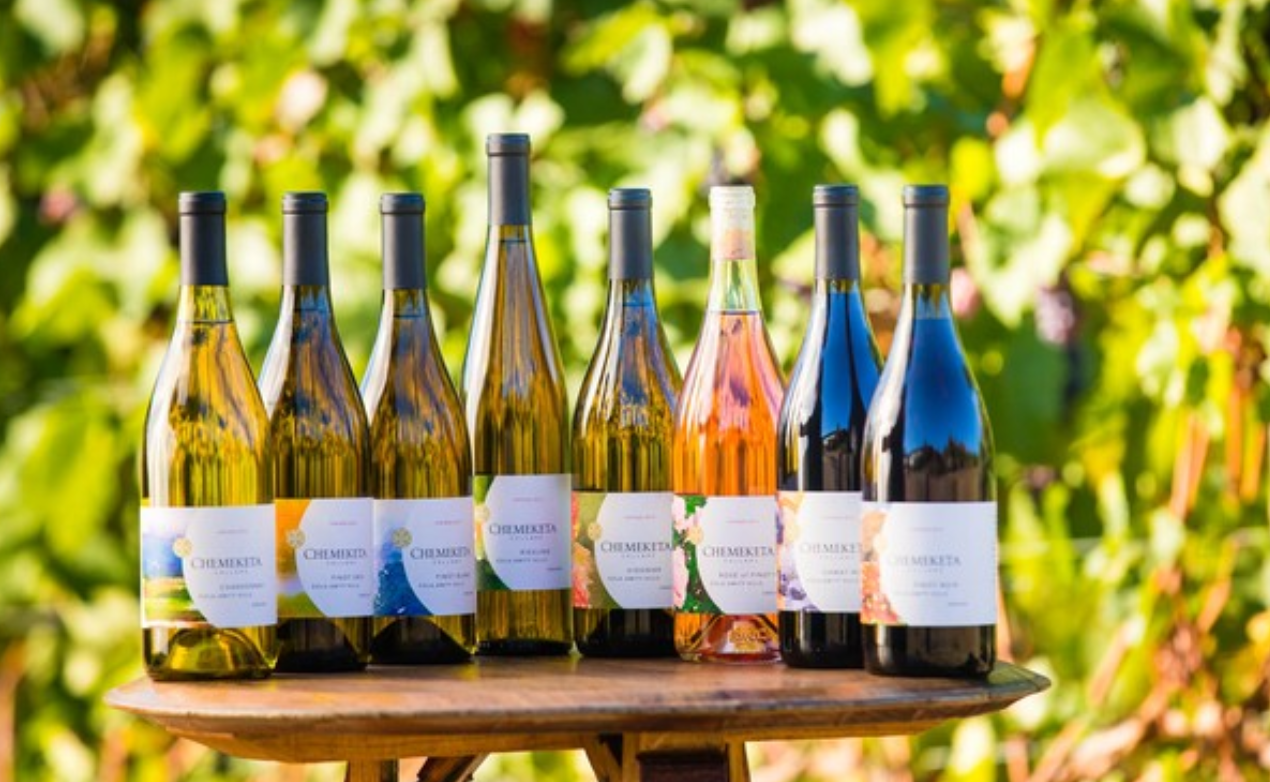If you’re reading this, you probably already know that Oregon produces world-class wine, but did you know that just as much work and talent goes into presenting that wine to you? Picture your favorite wine right now, there’s a story to how you first heard of that wine, and the ways in which it was described to ready your palate for what would eventually be your favorite first-sip. We at The Independence Hotel were recently able to chat with Eric Aebi, Program Chair for the Hospitality and Tourism School at Chemeketa Community College. And luckily for you, he shared with us his wisdom about all that goes into an education of wine studies and its relationship with tourism and the hospitality business. Read below to find out more, and who knows? Perhaps you’ll find that YOU have a future in the wine industry as well!
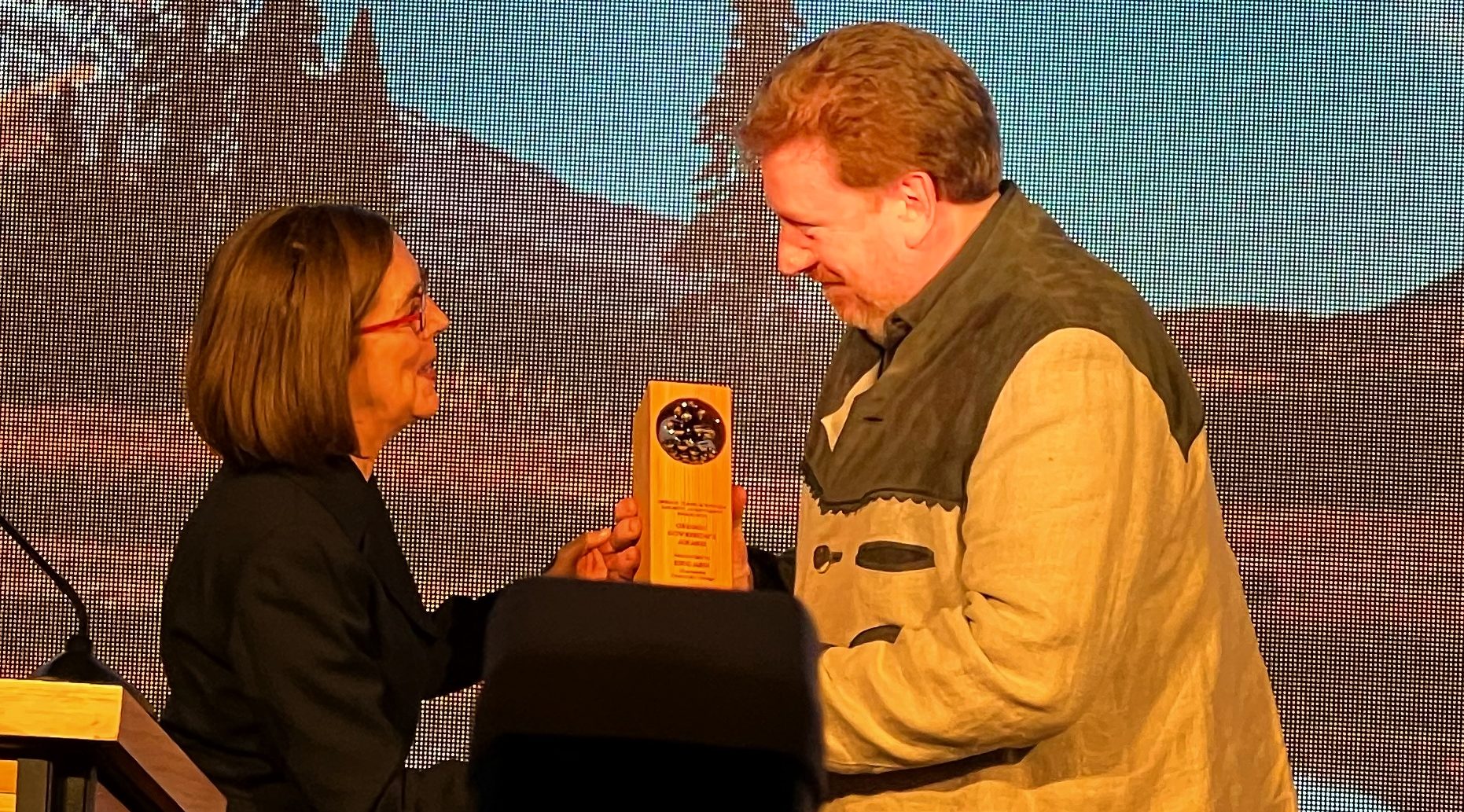
Independence Hotel (IH): Can you tell us a little bit about your background?
Eric Aebi (EA): I am a Gen Xer who was raised by a single mom, who worked, and I was the oldest child. My grandparents were immigrant entrepreneurs who ran restaurants, and I spent a lot of time in them as a youngster learning about food. Once grade school started, my responsibilities were to make sure my younger sister came home from school, that we had school lunches made, and that the chores were done. As I got to be old enough to use the oven, I even made dinner some days. Essentially, I was learning how to run a hotel!
I grew up pretty quickly in some senses. By the time I was 15, I knew I wanted a job to earn some money. Restaurants or construction were the choices for a kid my age to get a job back then. Since restaurants were in my family background, that’s where I found my role. I learned a lot in those days…. about life, how to work, people and the business. I worked for and with people of all races, genders, ethnicities, sexual orientations, political affiliations and faiths. During the meal service, we worked together like a team and at the end of the night we thanked one another and went home.
I learned a lot from all those people and through them I realized how big and diverse and beautiful the world is. I didn’t get scholarships to go to college, so I applied for financial aid and worked as a waiter and bartender to pay for books, housing, etc. I always say that to this day if I had to, I could still pay the rent waiting tables, pouring drinks or cooking eggs. The rest of my path is: I graduated, somehow got a job in a hotel in Portland and then later at a sister hotel in Switzerland. I was then hired by a Swiss company to be a hotel mystery guest, which took me around the world, evaluating over 500 hotels and resorts from 1-star to 5-stars in 74 countries. Then I transitioned to consulting for major international hotel chains around the world for the next 10 years or so before moving back to Oregon and starting a teaching career back here at Chemeketa.
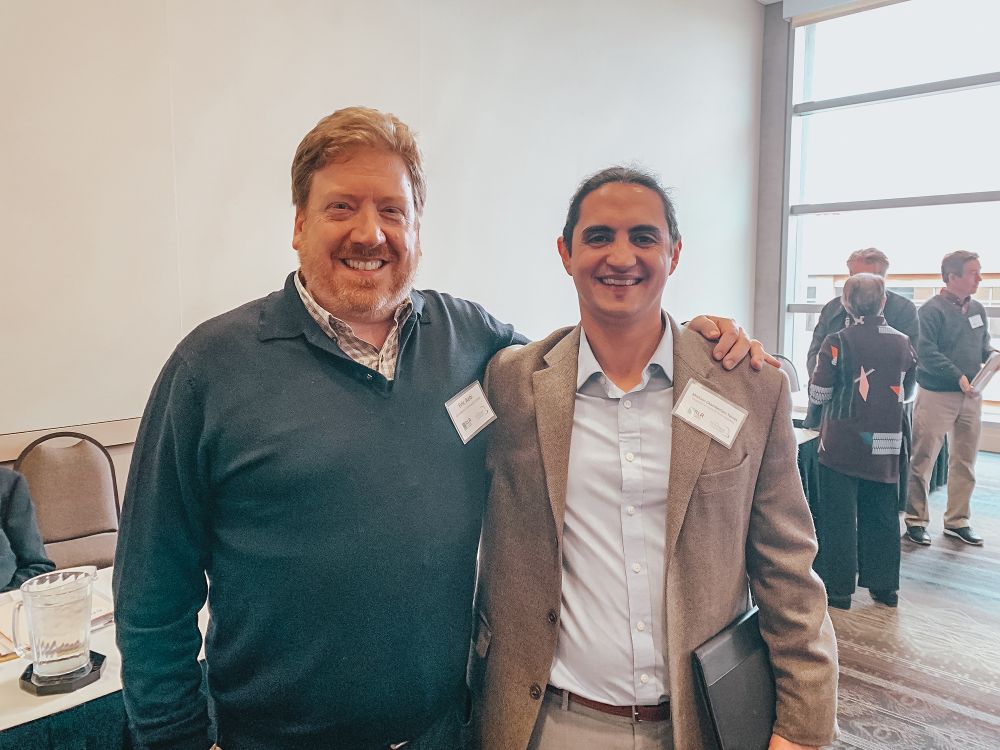
Eric has mentored and inspired so many in Oregon’s hospitality and wine industries.
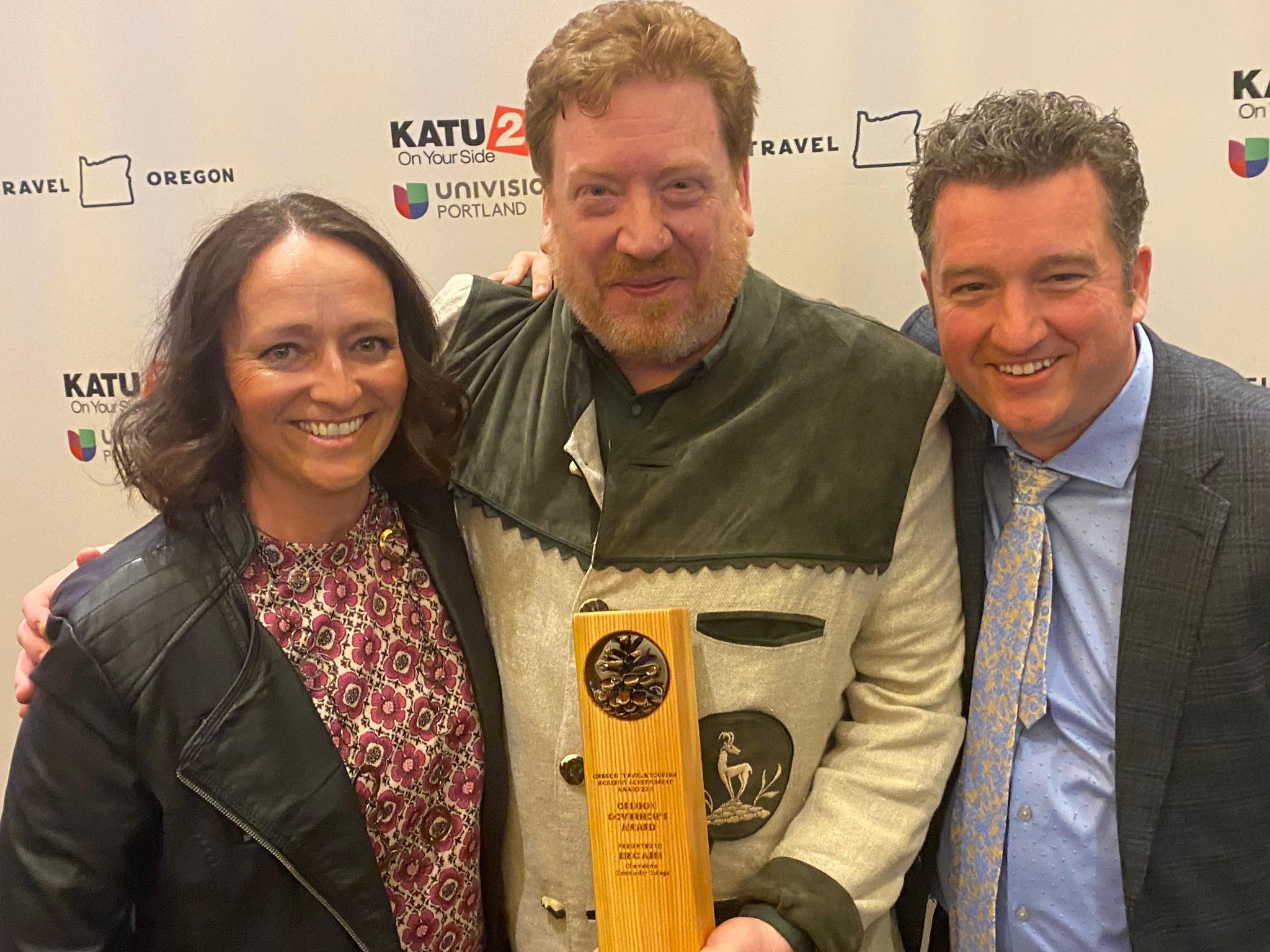
Celebrating his well-earned recognition for his contributions to Oregon’s dynamic tourism industry! Photo credit: Chemeketa Instagram
IH: What was your experience designing the Chemeketa Wine Hospitality Operations Program in 2018?
EA: The Wine Studies department at Chemeketa asked me to attend their industry advisory committee (I am program Chair of the Hospitality & Tourism Management Program) as they had questions around Direct To Customer (DTC) wine sales which was an emerging trend in wine distribution locally, and which involves many of the same skills as restaurant service and event planning (topics that I teach). From those discussions the need emerged for courses and a credential in Wine Hospitality Operations. We simply combined courses from both programs to form the Wine Hospitality Operations Certificate that is targeted to the DTC functions within a winery which can include: tasting room operations, wine club management, ecommerce and digital marketing concepts.
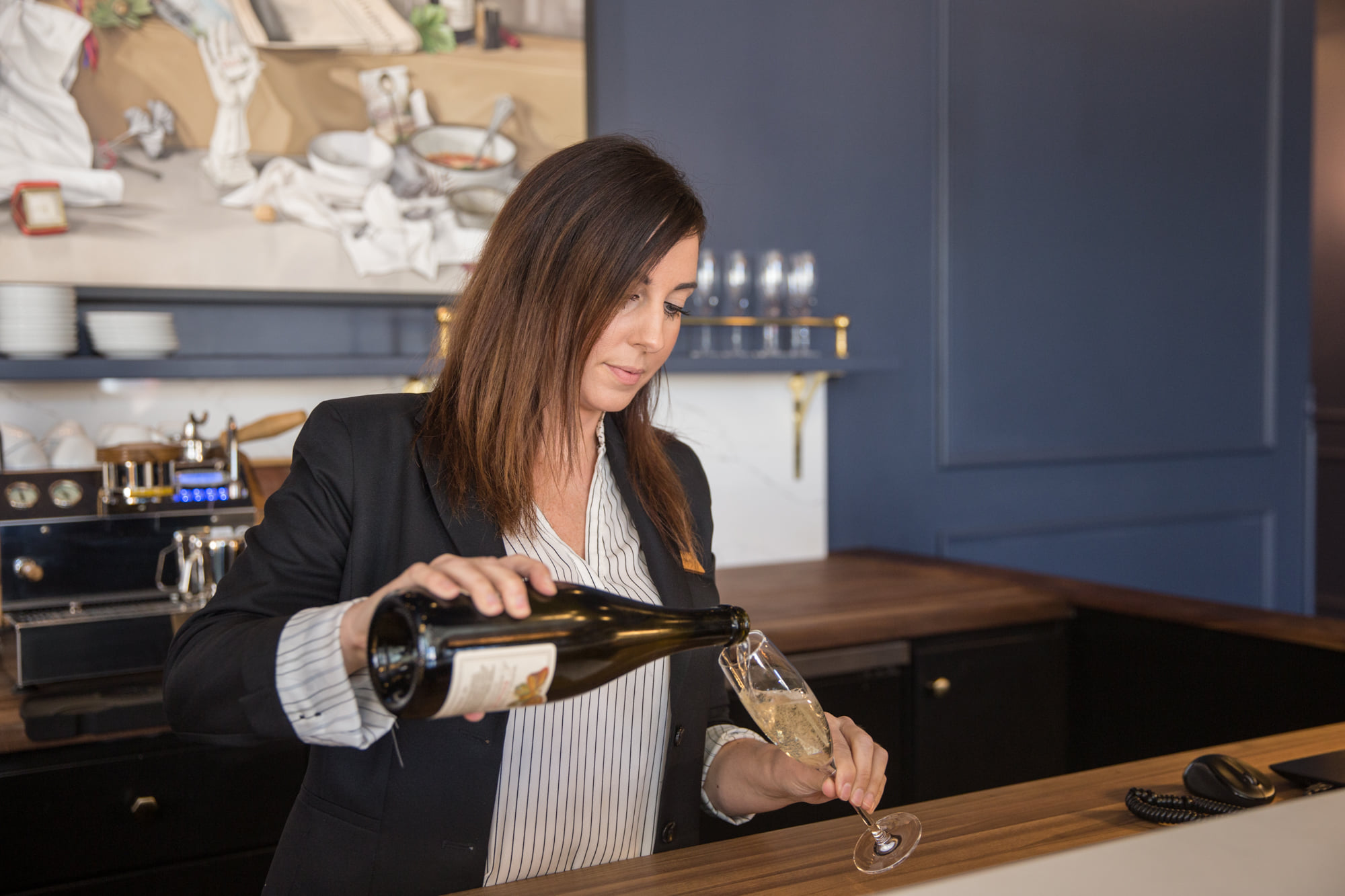
The Wine Hospitality Operations Certificate targets Direct To Consumer functions within a winery, including: tasting room operations, wine club management, ecommerce and digital marketing concepts. Photo Credit: Chemeketa’s Instagram
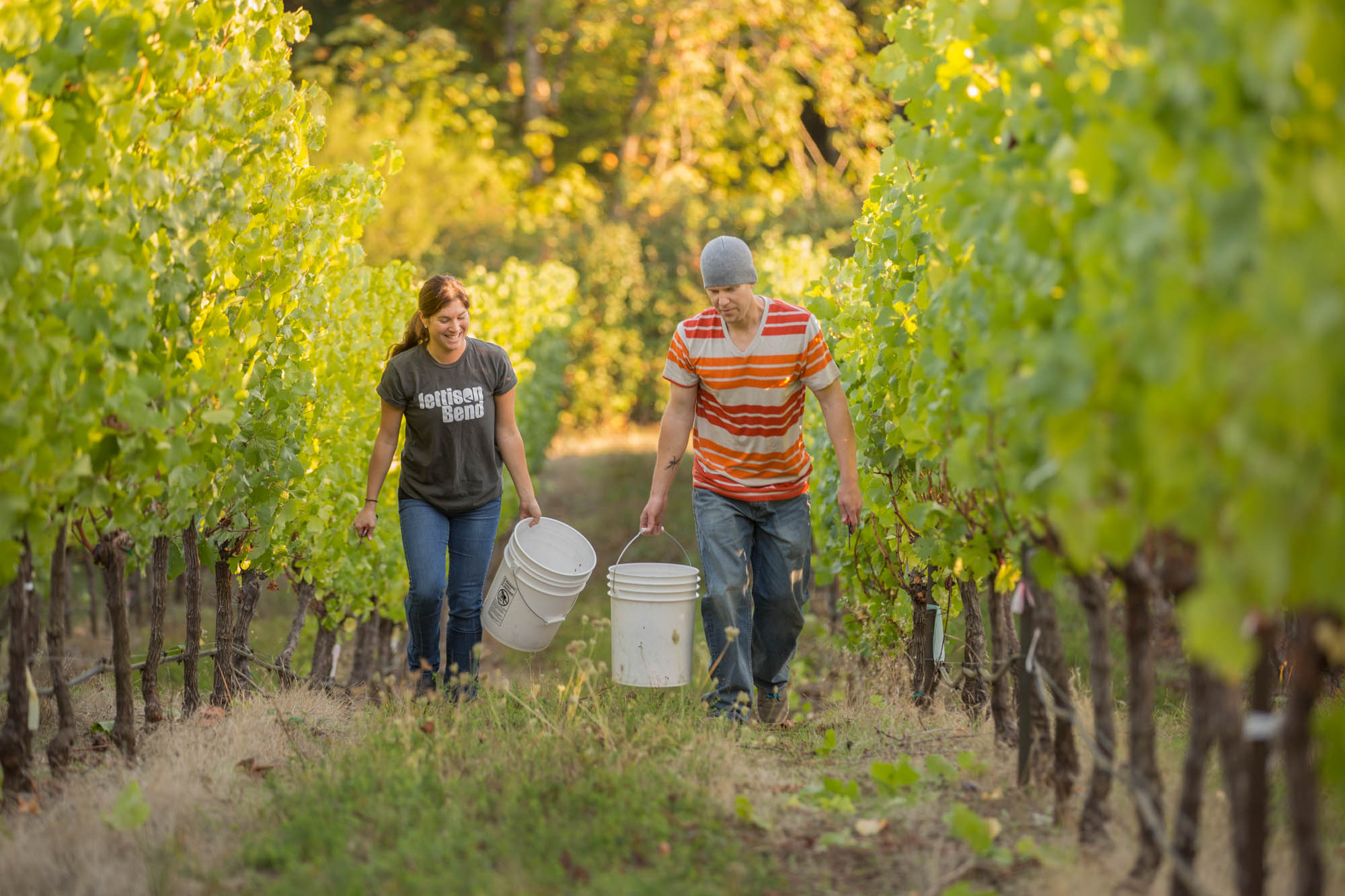
In addition to Wine Hospitality Operations, Chemeketa offers degrees in Vineyard Management, Winemaking, and Vineyard Operations. Photo Credit: Chemeketa Instagram
IH: How much of understanding wine is education, vs. connections, vs. experience in the field, vs. natural talent?
EA: I think you left out the most important aspect: TASTING WINE! I mean one has to have a passion for the product to be most successful in understanding it. The field of knowledge can be overwhelming so simply starting from a place of curiosity is the main thing. From there, it is all of those other things your question asks. Depending on your intent from there dictates the path forward. If you just want to be a knowledgeable consumer, then making connections with winemakers through wine clubs and winery tours can teach a tremendous amount about the grapes and winemaking styles from a region. Field experience is a way to gain knowledge about different regions in an affordable way–volunteering for harvests, etc. If actually growing grapes and/or making wine yourself is the goal, then education can shorten the experiential learning curve a great deal, plus make you more successful across different regions with their unique attributes.
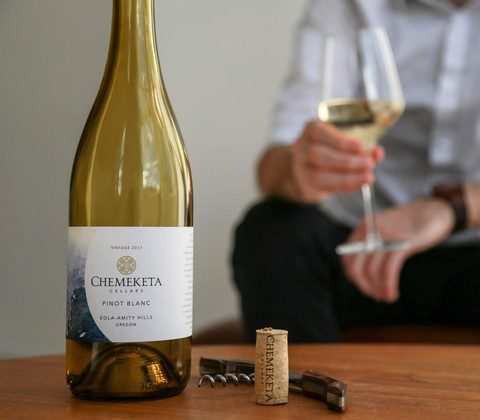
The Chemeketa Cellars tasting room in Salem provides visitors the opportunity to taste wines (many award winning) made by students in the winemaking program.
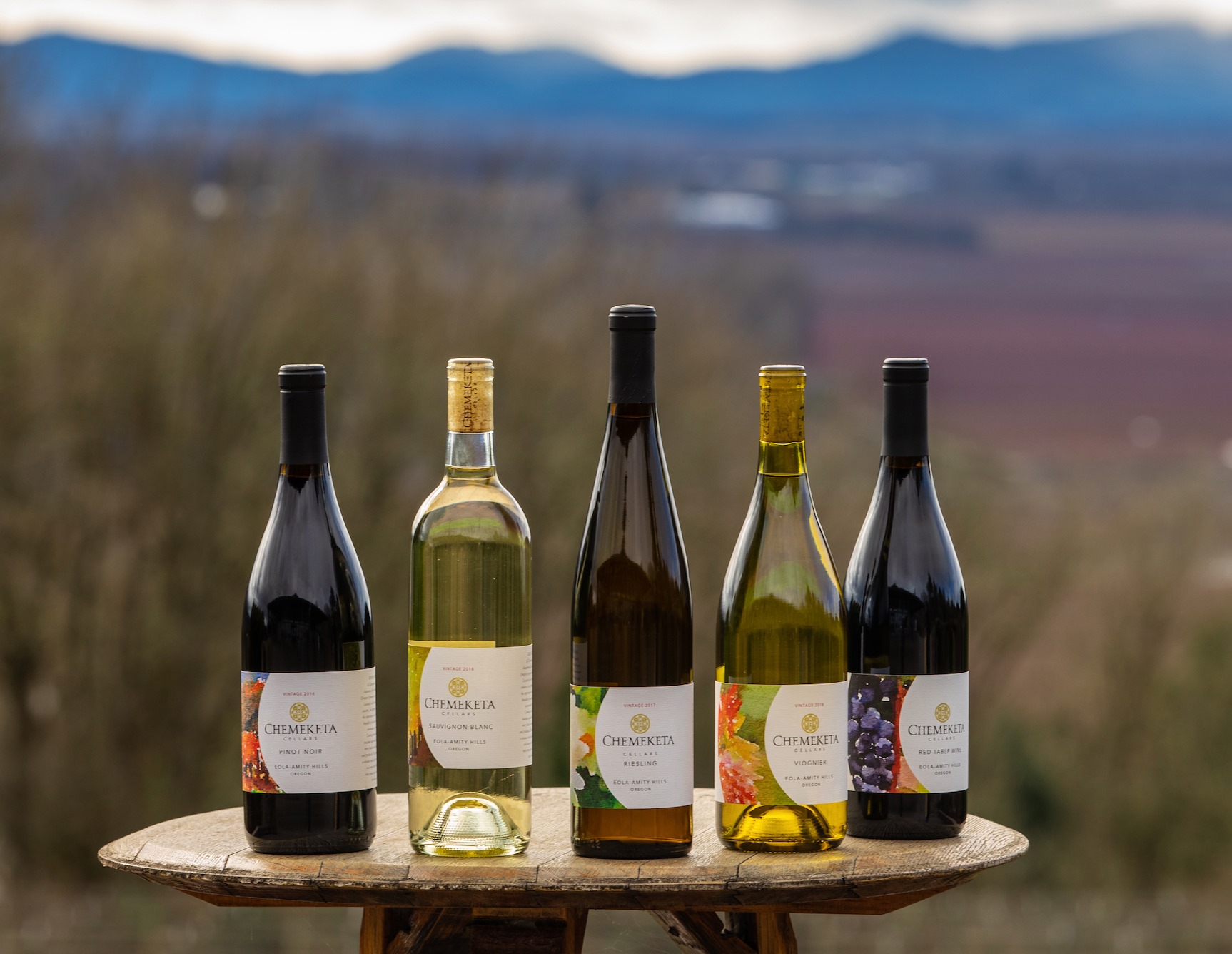
Chemeketa’s wine studies program has produced numerous award winning wines from Pinot Blanc to Reisling and, of course, some Pinot Noirs!
IH: Chemeketa’s Wine Studies program teaches its students the skills for a number of different careers in the wine industry, from managing the growth and production of wine grapes, to turning the grapes into wine, to managing a tasting room, and winery events. Do students end up choosing a focus before they graduate? Or is the idea that they leave the school ready for any and all positions?
EA: The typical student begins down one of two paths: viticulture or winemaking. We teach by doing, so students in the process of working the vineyard or the cellar occasionally discover some aspect they didn’t care for (working outside, or heavy lifting are common ones) and then they discover the Wine Hospitality Operations and they might take a course and work in Chemeketa Cellars Tasting Room to get a sense of that work environment as an alternative.
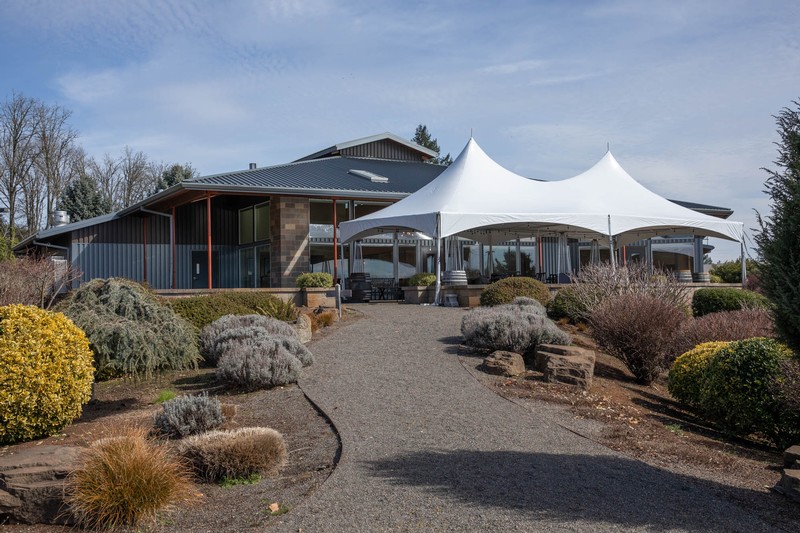
A visit to the Chemeketa Cellars tasting room is the best way to experience the student-made, award winning wines. Students of the Wine Studies program operate the tasting room and share their knowledge about the wines currently being poured. The tasting fee is $15, waived with the purchase of two bottles. The tasting fee is waived for Wine Club members (that’s right, there is a wine club).
IH: What about working with the Wine Studies program brings you the most joy? What has surprised you the most?
EA: I have always loved the seasonal cycle of the vineyard and the cellar. It has a way of anchoring you into the natural environment and the rhythm of the life cycle. Of course, as someone who has worked in gastronomy, the alchemy of food and wines is a pleasure of living that I study and explore with zeal. So, by blending my interests and personal experience into my job, I have discovered the perfect career for someone like me. I am extremely fortunate and want to make other people aware of these opportunities. What surprised me the most? How similar winemakers are to chefs and viticulturists are to produce farmers temperamentally and in terms of their personas. It shouldn’t surprise, given the nature of the work in each case, but for some reason it did surprise me…. in a good way.
IH: What is your advice for a beginner who is interested in learning about wine?
EA: Well, taste wines as often as possible. If you are a bit of an autodidact like me, then buy a book on wine and read it. Then read another and so on. My entree into wine was through restaurant work at the Heathman Hotel in the 1980’s, which led me to buy and read Hugh Johnson’s The World Atlas of Wine as my first wine book. My edition was a 20 lb. hardback copy that I toted with me everywhere for about 6 months along with my Chef grandfather’s hardbound copy of Larousse’s Gastronomique!
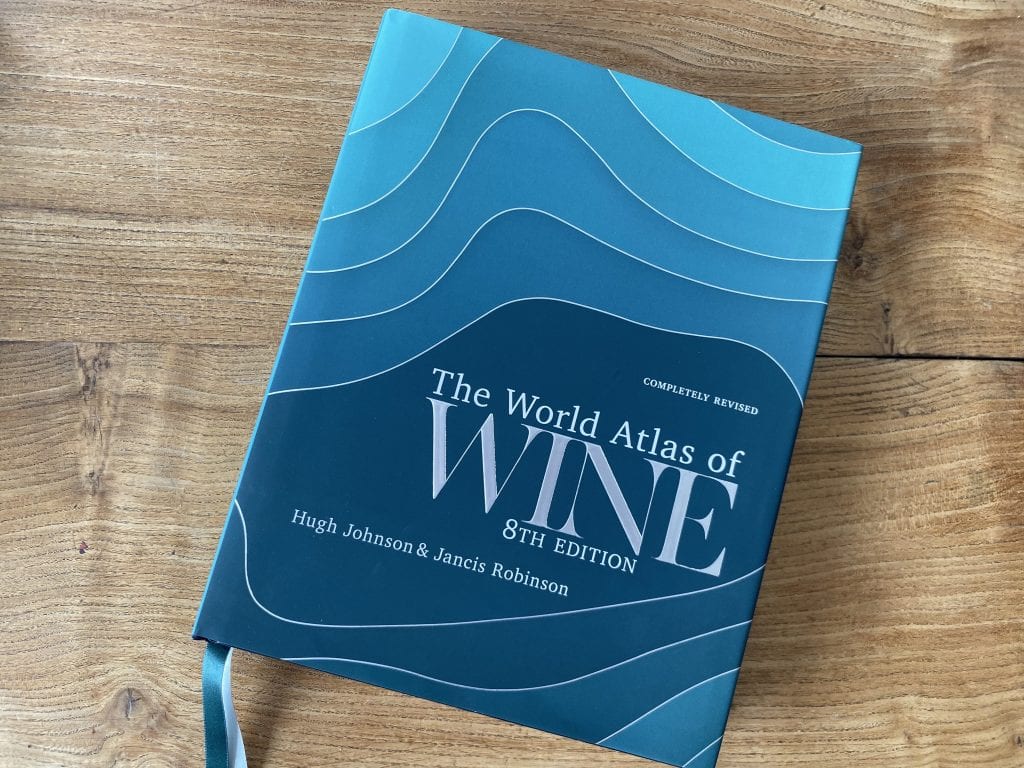
Eric’s go to wine resource when he was first learning the artistry and the industry!
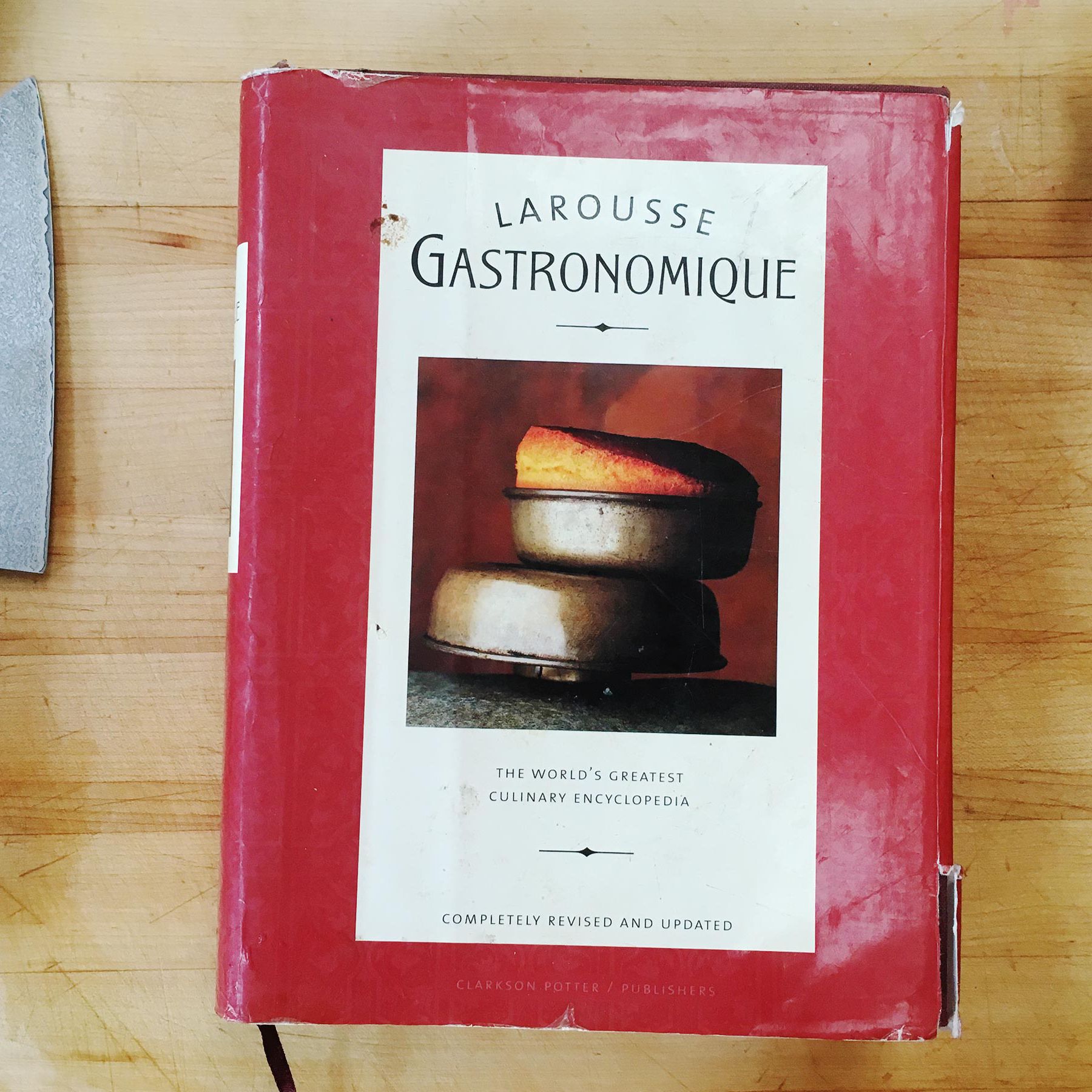
With the World Atlas of Wine, Eric’s reading staples, especially early in his career.
IH: What is one thing about wine studies you wish more people knew? On the flip side, what is one myth about wine studies that you’d like to debunk?
EA: I wish everyone had the experience of the work environment at a vineyard and winery: the teamwork, camaraderie of a shared passion, the challenge of working in an environment that dictates to you often how the job must be performed that day. That variety and testing of your knowledge and intellect is never dull. A myth of wine studies? Hmmm….I guess that it is leisurely and involves a lot of sitting around and swirling wine glasses? I mean that is a part of it, but mostly, it is an active daily work life of problem-solving and sanitizing equipment and workspaces… lots of sanitation is the key to happiness!
IH: You have consulted for a large range of hospitality businesses from hotels to brewpubs. How does the venue in question change the way you approach your work?
EA: I would say it changes in the amount of resources involved and the scope of the project. But, it is always the same: define the ultimate guest experience, and incentivize the people and processes around delivering to that standard in every single guest interaction. Lather. Rinse. Repeat. The tried-and-true methods of building high performance service organizations (HPSO) are known and codified the world over. The challenge, as operators, is to maintain continuous improvement. It’s easy to lose that “guest perspective” so one has to find ways of always centering and amplifying that voice. The secret is, often your employees can do it through a sort of experiential osmosis… by working with guests every day, they can uniquely represent the guest voice in internal discussions in most cases.
IH: I read that you work to address the skill gap in the Willamette Valley wine industry around Direct-To-Consumer (DTC) marketing and distribution. Can you elaborate on that?
EA: Specifically, by creating educational opportunities for potential employees to access and onboard into the industry. The college has invested in a Tasting Room for our college winery, Chemeketa Cellars at the NW Wine Studies Center at Eola. We look to soon be offering non-credit workshops alongside our for-credit Wine Hospitality Operation Certificate for those who might actually be working in industry already, but have never managed a Tasting Room, or planned an on-site event with foodservice, or started a Wine Club.
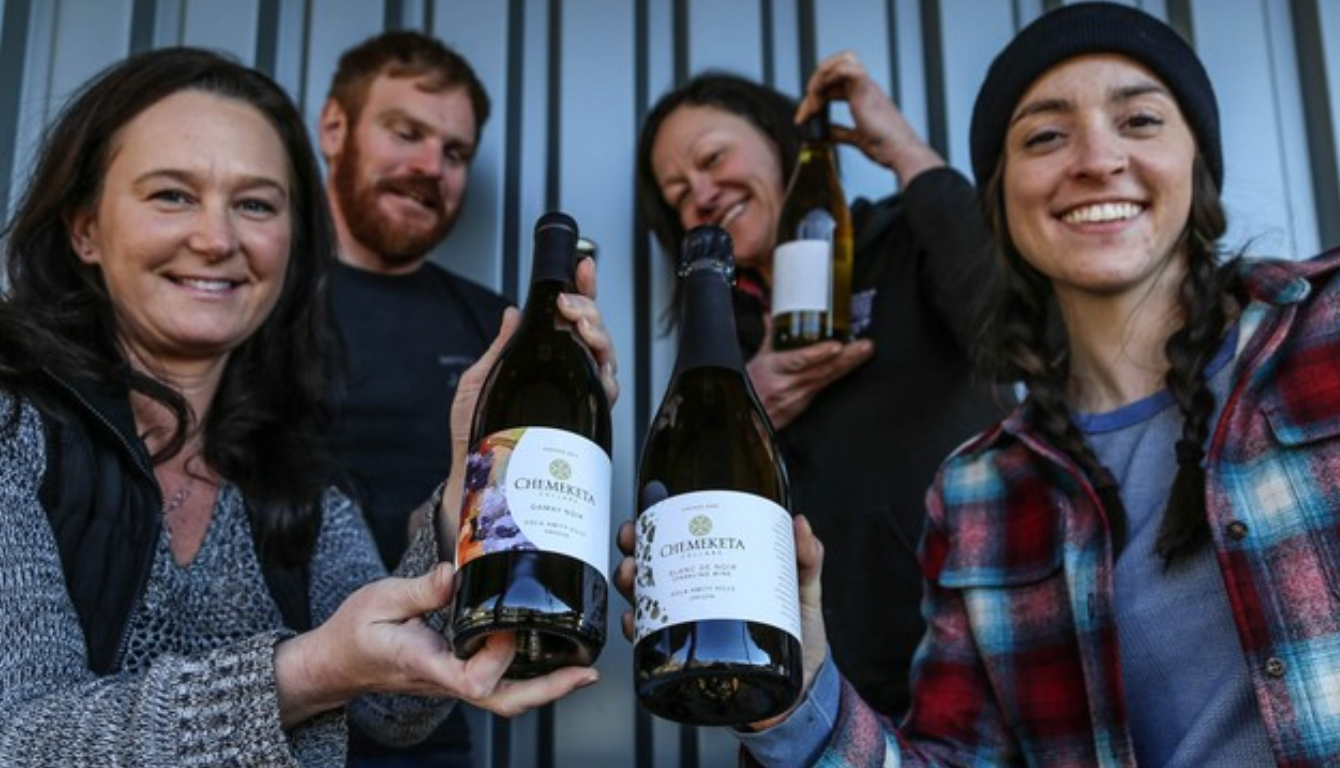
Students show off their award winning wines!
IH: Where do you think the tourism/hospitality business is headed in Oregon? How do you see it changing or evolving over the next decade or so?
EA: The sky’s the limit. Here’s the deal: there are only a handful of places on Earth that combine stunning landscapes from sea to mountains to high deserts; world-class wines and peak seasonal foodstuffs from game, to seafood, to produce to mushrooms to gourmet cheeses and warm-hearted, unpretentious, artisans and hosts as residents who want to share their abundance. And now, the word is out. James Beard began to tell the story 75 years ago. It was 35 years ago that his successors told the story to me. Now, we are telling it to a global audience. The through line is gorgeous vistas, world-class recreation, award-winning edibles and potables, and gracious, convivial Oregonians.
IH: What has been your relationship with The Independence?
EA: Well, as the project was developing, I had gotten to know the local economic development people who were assessing the future needs of an emerging tourism destination and wanted to know how they could plan for it best. Wisely, they understood that there are good ways and bad ways to develop tourism, just like any other industry. Then as the hotel began to open and was hiring and promoting, in their outreach they contacted me to connect their opportunities with program graduates. Matt Smith, the GM, and I have gotten to know one another as well and he graciously serves on our Industry Advisory Committee to ensure our career educational offerings are responsive to local needs.
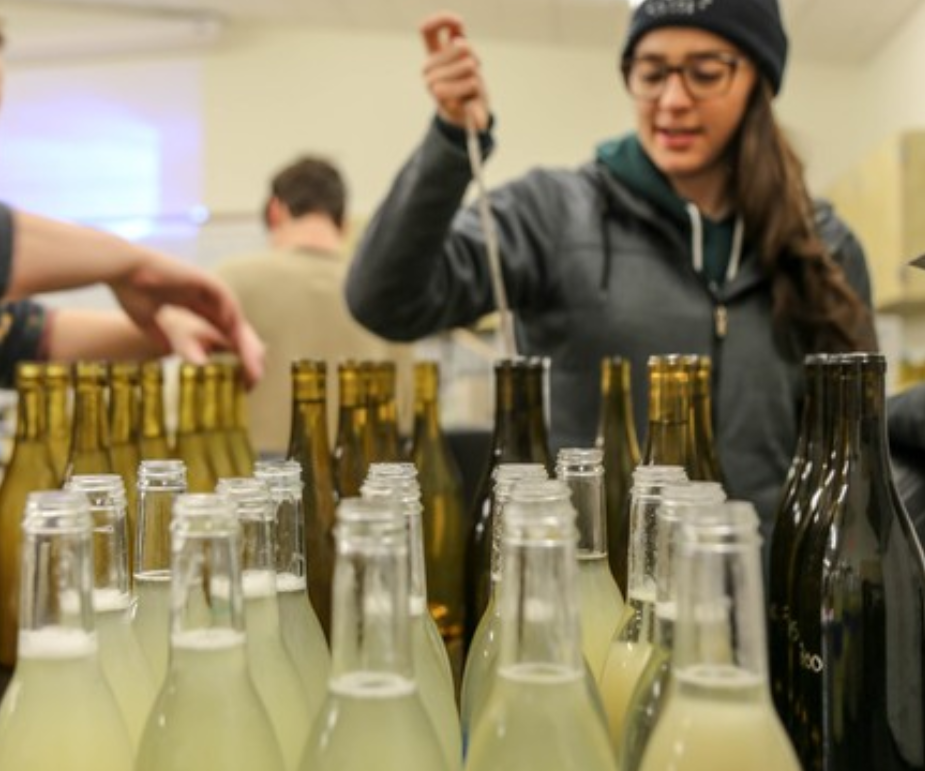
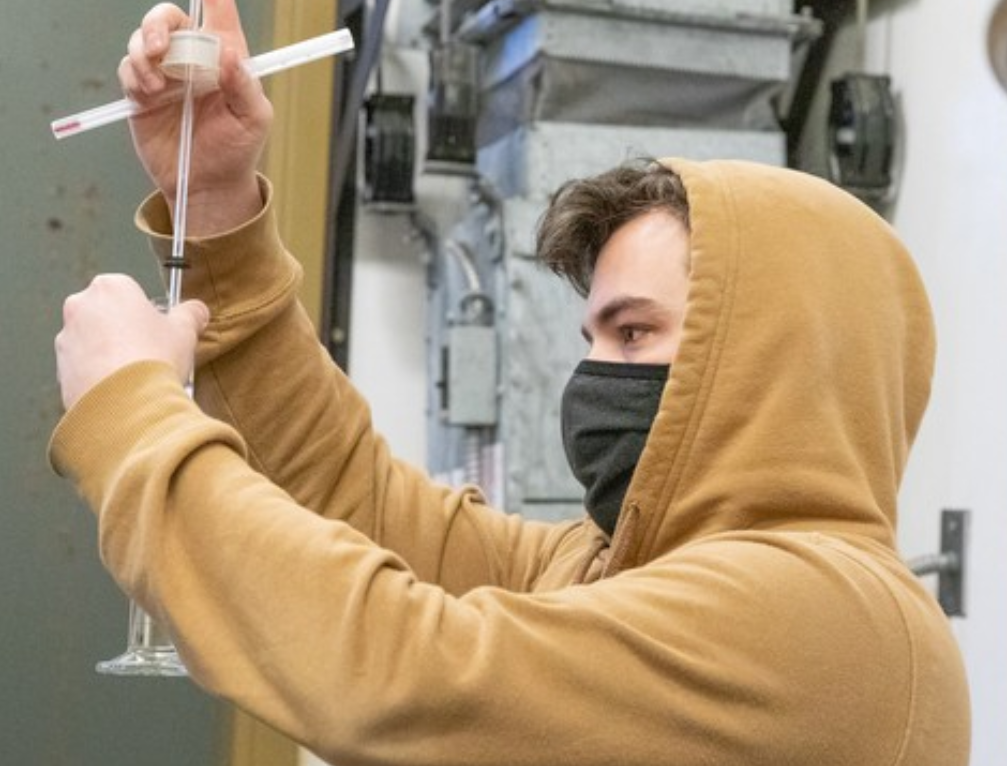
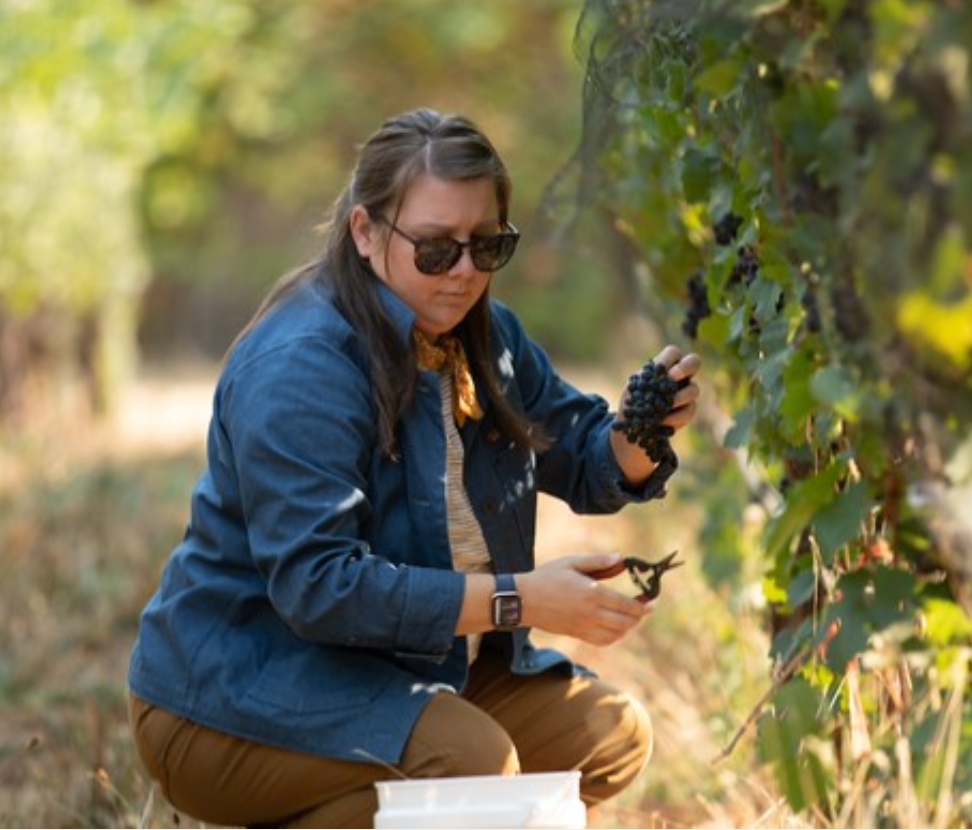
Students learn skills for a number of different careers in the wine industry, from managing the growth and production of wine grapes to turning the grapes into wine to managing a tasting room and winery events. Photo Credits: all from the Chemeketa Cellars Photo Gallery.
IH: You have traveled all over the globe, what is your favorite aspect of working in Oregon?
EA: I sometimes feel like I was born to be here and be a part of this developing industry story. No one knew of Oregon as a gastronomic destination when I was born in the Sixties. My family ran restaurants in Portland and around the State, but the clientele was local. My grandfather trained as a Chef in Europe, and he understood the quality of the agricultural products here. James Beard had gone to New York City by this time and was a renowned caterer who wrote and spoke of Oregon’s unique bounty, but he was the only one, and he did so in print, prior to the television era mainly. So, we remained a secret until the wine pioneers came and planted vines in the 70’s. They shocked the world by winning wine competitions in France, which put Oregon on the gastronomic map by the early 1980’s. I jumped on the train then when I waited tables to pay for college and worked at The Heathman, which became the epicenter of the State’s burgeoning gastronomic revolution.
Subsequently, I worked for the pioneers of craft-brewing, then I became involved with helping Travel Oregon and the State’s communities to fashion ultimate guest experiences that drove visitor loyalty and repeat visits. Likely to the chagrin of the late Governor McCall whose impatience with tourists was legendary! But, nonetheless, Oregon was shifting from a largely extraction-based economy (timber, mining, fishing) to an attraction-based economy of tourism and venture capital in the technology sector. These changes fueled the service industries of hospitality & tourism that supported them and attracted more entrepreneurs and artisans who saw the potential of Oregon. I want to be apart of that story as long as I can. Although, I am hoping to do more of it from the guest perspective myself as I approach my 60th birthday.
IH: Is there anything else you’d like to mention that I haven’t asked about?
EA: Just that I would encourage parents and young people to consider the amazing career opportunities this industry affords. The work environments are dynamic, the products amazing, the guests enriching and the compensation rewarding. So, if STEM and Health Care aren’t the careers for you or your child, then this just may be the answer. I have lived my dreams, traveled the world many times over, lived overseas, learned languages, accumulated a United Nations roster of friends and earned enough money to live and retire comfortably along the way. And I started by parking cars for hotel guests and washing dishes! In other words, if you are willing to work hard, be a great co-worker, and care for guests enthusiastically then you can write your own itinerary. And, you don’t need a Bachelor’s Degree to do it!
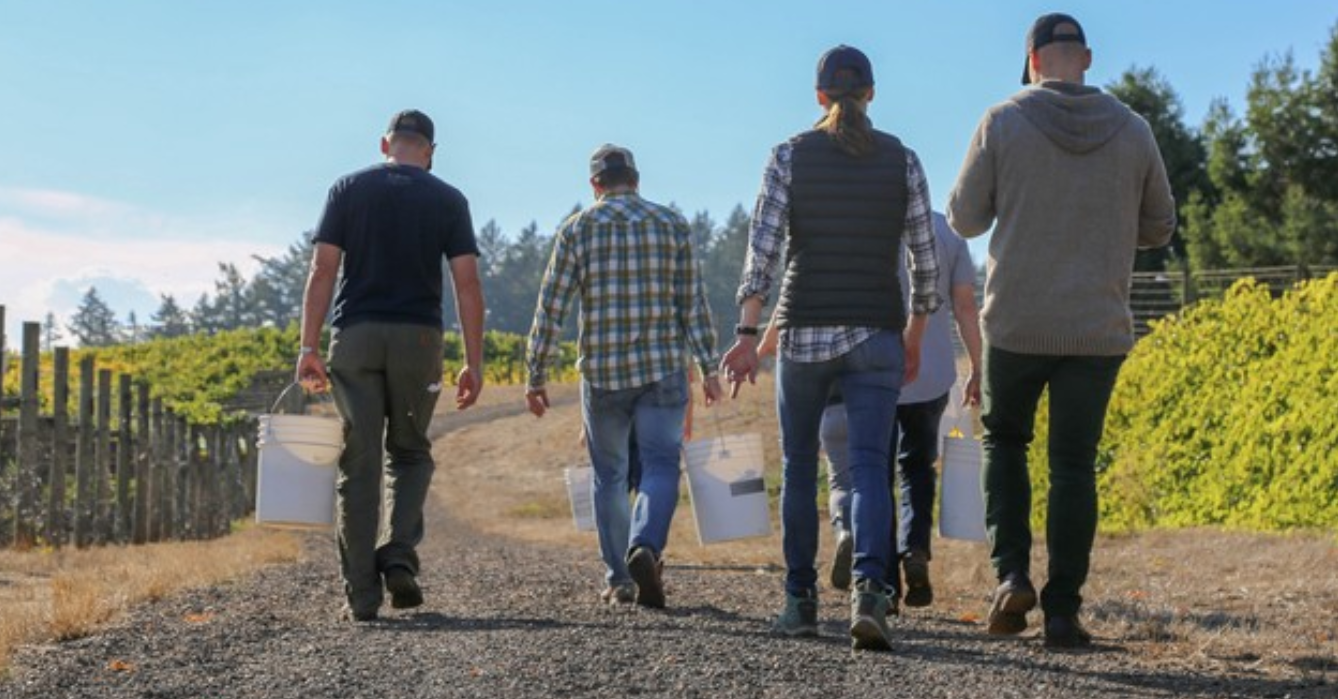
Students get familiar with the seasonal cycle of the vineyard and the cellar, learning every step from harvesting to pouring!
